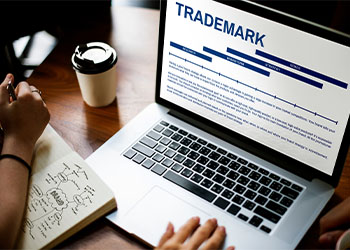Understanding Trademark Classification
Feb. 13, 2023
 A trademark is an important legal tool for businesses and individuals who want to protect their brand. It helps distinguish a business’s goods or services from those of other companies.
A trademark is an important legal tool for businesses and individuals who want to protect their brand. It helps distinguish a business’s goods or services from those of other companies.
However, filing for a trademark and choosing the right trademark class can feel overwhelming – there are numerous steps involved and plenty of potential pitfalls along the way.
That is why you may want to contact a knowledgeable trademarks attorney to guide you through this process and explain trademark classification. As a trademarks attorney at the Law Office of Julie Scott LLC, I assist clients in navigating the complexities of trademark law in Kansas City, Missouri, and surrounding areas, including Springfield, Columbia, and Rolla.
What Are Trademark Classes?
Trademarks are granted by the United States Patent and Trademark Office (USPTO) and divided into 45 different classes, each representing a different type of product or service. However, we’ll focus on the two main classes for trademarks: products and services.
Product Trademarks
Product trademarks are used to protect physical items such as clothing, toys, food, furniture, appliances, and more. This class also includes items that can be used in conjunction with one another, such as car parts or jewelry components. To qualify for a product trademark, the proposed mark and product must be unique enough that consumers can recognize it as belonging to your specific business. For example, the proposed mark "My Fruit Stand" for a business that sell fruit is not sufficiently unique.
Service Trademarks
Service trademarks are used to protect services such as customer support, consulting services, repair services, legal advice, and more. To qualify for a service trademark, the proposed mark and service must be unique enough that consumers can recognize it as belonging to your specific business. For example, the proposed mark "Best Car Repairs" for a business that repairs vehicles is not sufficiently unique.
Why Are Trademark Classes Important?
Trademark classes are important because they help businesses identify which goods and services they can legally claim as their own by distinguishing between competing trademarks with the same name in different industries.
For instance, two companies could both use the same name for their respective businesses without infringing on each other’s trademarks if one company is selling t-shirts (Class 25) while the other is selling toys (Class 28). In such a way, these trademarks can co-exist.
Additionally, knowing what class a product or service falls into can help identify potential infringers who may be trying to pass off another company’s goods or services as their own.
Common Mistakes Made With Trademark Classes
Unfortunately, many people make mistakes when filing for trademarks, so it’s essential to understand some of the most common errors before getting started.
Failing to Perform an Availability Search Before Applying
The first mistake people often make is failing to perform an availability search before applying. A thorough availability search helps you verify that your desired name or phrase has not already been registered by another person or company. It’s easy to overlook this step, but failing to do so could be costly if another party has already secured rights to your desired name or phrase.
Choosing the Wrong Trademark Class
You must select one of the 45 classes offered by the USPTO when registering your trademark. Many people fail to understand which class best suits their needs. This can cause problems down the line if you are found to be using your trademark outside of its intended scope or purpose. It’s also important to note that you may need to register your mark in multiple classes depending on how you plan to use it in commerce.
Not Having a Distinctive Trademark
Your desired name or phrase must be able to distinguish itself from other marks already registered with the USPTO in order to qualify as a valid trademark application. This means that overly generic terms such as “clothing store” may be rejected outright due to a lack of distinctiveness. It also means that whether your desired name or phrase could be confused with an already registered mark is considered during examination. If you have doubts as to whether or not your proposed mark would qualify, it might be wise to consult with an experienced attorney who can guide you through the process and help ensure that your application meets all legal requirements.
Failing to Enforce Trademark Protection
Once someone has obtained a registered mark, they must actively enforce their rights against those who infringe upon them in order for those rights to remain in effect over time. This means sending cease-and-desist letters if necessary and taking legal action against any offenders if needed, something many people forget about after obtaining their registration. It is crucial that owners stay vigilant and enforce their trademarks whenever possible. Otherwise, they risk losing their rights altogether.
Not Consulting With a Trademark Attorney
Lastly, many individuals fail to consult with a qualified attorney before filing for a trademark – something that can lead to costly mistakes if done improperly. An experienced attorney will be able to review your proposed mark and advise you on whether it qualifies under current laws – as well as provide helpful guidance throughout every step of the registration process.
Practical Legal Counsel: The Law Office of Julie Scott LLC
Trademarks are an important tool for businesses looking to protect their brand identity and differentiate themselves from competitors. As a trademarks attorney at the Law Office of Julie Scott LLC, I help clients understand everything they need to know about trademark classification and guide them through every step of the application process. I can help you enforce and maintain your trademark rights in Kansas City, Missouri, and surrounding areas. Call today to receive a free consultation.
